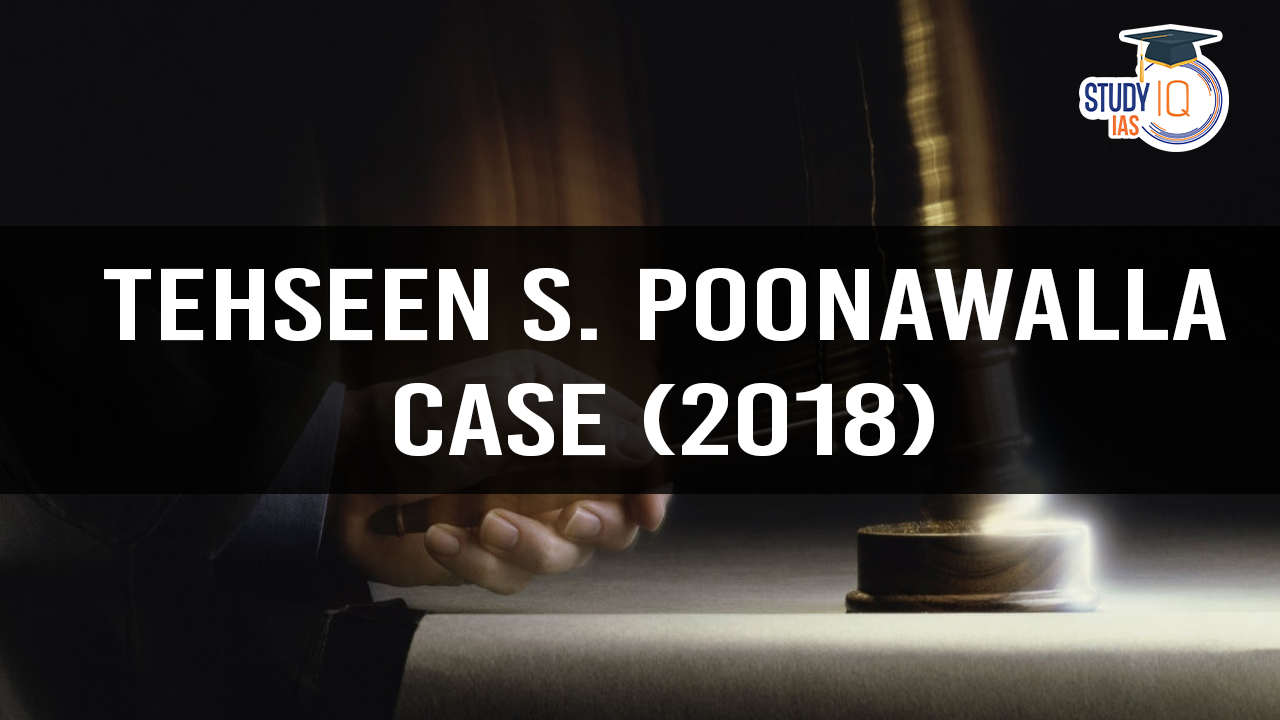Table of Contents
Context: The Supreme Court has disposed of a Public Interest Litigation (PIL) that sought action against incidents of mob lynching and cow vigilantism.
Key Observations by the Supreme Court
- SC observed that the matter had already been addressed in the 2018 case Tehseen S. Poonawalla v. Union of India.
- The court emphasized that directions issued in the Tehseen Poonawalla case are binding on all authorities under Article 141 of the Constitution.
- SC stated that monitoring incidents of lynching and vigilantism across states from Delhi would be impractical.
Directions issued by SC in Tehseen S. Poonawalla Case (2018)
Preventive Measures
- All states were directed to appoint a senior police officer as a nodal officer in each district to prevent mob lynching incidents.
- States are required to identify areas where lynching and cow vigilantism were prevalent and increase police patrolling in those regions.
- The Supreme Court instructed social media platforms to curb hate speech and fake news that could incite mob violence.
Punitive Measures
- Fast-track courts are to be set up in each district to handle lynching cases with priority.
- The guilty should be punished with strict penalties, including life imprisonment for lynching-related crimes.
Compensation to Victims
- The Supreme Court directed states to develop a compensation scheme for victims of mob violence.
- Compensation was to be determined based on the severity of injury, loss of livelihood and medical expenses.
Accountability of Government Officials
- Government officials to be held accountable for negligence in preventing lynching cases.
- States to take action against officials who failed to enforce law and order in mob violence cases.
Legislative Measures
- The Supreme Court urged Parliament to consider enacting a separate law against lynching to strengthen legal provisions.
- Following this, some states like Rajasthan and Manipur enacted anti-lynching laws, but a national law is still pending.


 Arbitration in India, Types, Benefits, R...
Arbitration in India, Types, Benefits, R...
 Revised Detention Policy Implemented by ...
Revised Detention Policy Implemented by ...
 Linking Aadhaar with Voter ID Endangers ...
Linking Aadhaar with Voter ID Endangers ...





















